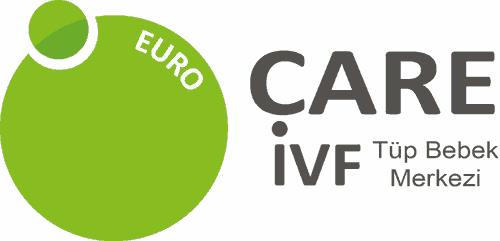
For many people the idea of reaching menopause at the age of 25 may look impossible. But for those who suffer from this rare condition, premature menopause can actually be way more challenging than just losing your menstrual cycles.
Most women who learn they’re prematurely menopausal, find the loss of fertility one of the most difficult things to deal with. No matter if you already had a child or your are aspiring to have your first one, premature menopause requires coping strategies and an effective treatment.
The most important thing to keep in mind is that building a family after you reach premature menopause is still possible! The advances in assisted reproductive technology allow affected women to fulfill their dream of becoming parents.
What is premature menopause?
Menopause is the absence of menstrual periods for twelve consecutive months. This is the time in a woman’s life when menstruation permanently stops and ovulation no longer occurs. Menopause marks the end of a woman’s reproductive age and is a normal part of the aging process.
There is a wide variation regarding the timing of menopause. Normally, menopause starts around the age of 51. However, due to medical and other reasons menopause can start earlier in life, before the age of 45 and in some cases, even before age 40. Premature menopause is one of the causes of infertility in women.
What Age can Premature Menopause Start?
Premature menopause happens when your final menstrual cycle happens before the age of 40. Having lost the primary function of the ovaries to produce eggs and ovulate will affect your chances of pregnancy and can lead to reduced fertility . However, premature menopause does not necessarily mean you cannot become a mother if you wish so. It may not happen the way you expected it to be and will definitely require exploration of alternative options. Having a child after menopause and building a family is possible with IVF (in vitro fertilization) in Cyprus!
Our medical team at the euroCARE IVF in North Cyprus will help you to explore the steps you can take to achieve your dream of motherhood. Your treatment options will depend on your medical condition and other individual circumstances. Fertility consultation will help you make a well-informed decision about your journey to parenthood.
Signs of Premature Menopause
The symptoms of premature menopause are those of typical menopause. These can include:
- Mood swings
- Vaginal dryness
- Hot flashes
- Low libido
- Sleep disturbances
- Weight gain or weight loss
- Night sweats
- Vaginal pain during intercourse
- Urinary problems
- Irregular periods
The symptoms of premature menopause greatly vary from person to person. Sometimes, premature menopause can be more subtle. Regular check-ups and keeping track of your periods can help your doctor determine whether you’re premenopausal, and recommend a treatment for controlling the symptoms.
Causes of Premature Menopause
Premature menopause can be caused due to the following conditions:
- Premature ovarian insufficiency (POI). POI, also known as premature ovarian failure, happens when a woman’s ovaries stop working normally before she gets 40. POI is accompanied with irregular periods and reduced fertility. In rare cases, it can start in the teenage years. With POI, your periods may become irregular but you still have chances to conceive on your own.
- Induced menopause. Premature menopause can happen as a result of secondary causes including surgery or cancer treatment. Certain medical conditions, such as uterine cancer or endometriosis, require your ovaries to be surgically removed. Treatments for cancer such as radiation and chemotherapy can also induce menopause. These treatments can damage the ovaries and cause them to stop working.
Other reasons for premature menopause
Other conditions that can cause premature menopause include:
- Autoimmune disorders
There is a positive correlation between POI (premature ovarian insufficiency) and autoimmune diseases. Some of the autoimmune disorders that affect fertility include Addison’s disease (adrenal insufficiency), thyroid disease, type 1 diabetes, Crohn’s disease, and coeliac disease.
- Metabolic disorders
Some metabolic disorders including galactosaemia and aromatase deficiency can lead to premature menopause. Galactosaemia is a condition in which the carbohydrate galactose cannot be converted into glucose. Unconverted galactose can be toxic to the ovaries. Aromatase deficiency, on the other hand, occurs when the hormone androgen cannot be converted to oestrogen in the female body.
- Infection
Some viral and microbial infections can lead to POI. In some cases, mumps can cause an infection in the ovaries called oophoritis (inflammation of the ovaries).
- Idiopathic (unknown)
Sometimes, the cause that triggers premature menopause is unknown. In the vast majority of cases (60%), the cause can’t be found.
Is Premature Menopause Hereditary?
The timing of menopause can be determined based on what age your mother reached menopause. If your mother started menopause early, it is more likely to happen the same to you.
Some genetic conditions may interfere with the normal ovarian function, including:
- Turner syndrome (one of the X chromosomes is missing or abnormal)
- Fragile X syndrome (where a particular DNA segment of the X chromosome is multiplied in greater number)
Women affected by Turner’s syndrome (type XO) and fragile X syndrome often have POI. There are other rarer genetic conditions, such as galactosaemia that may cause premature ovarian failure. In about 5 to 30 percent of women with premature menopause have a female relative affected by a genetic condition that triggers menopause at an early age.
How Common is Premature Menopause?
About 1 out of every 1000 women from ages 15 to 29 is affected by premature ovarian insufficiency and about 1 out of every 100 women aged 30 to 39.
Can Premature Menopause be Reversed?
Once premature menopause starts, it is unlikely to reverse it. Further research is needed to explore and evaluate possible options for reversing or preventing premature menopause.
Can Premature Menopause be Treated?
Currently, there is no treatment that can reverse or prevent premature menopause. However, women who have reached menopause do have treatment options that can help them manage or control symptoms. Common treatments and therapies include:
- Hormone therapy: hormone therapy (HT), also known as estrogen therapy (ET) is an effective way to control symptoms like hot flashes and vaginal dryness. Generally it is recommend to use the lowest possible dose of estrogen for the shortest period of time in order to avoid any complications associated with the estrogen therapy.
- Calcium and vitamin D supplements: Women with premature menopause are at risk of developing osteoporosis. Calcium and vitamin D can prevent osteoporosis. You will have bone density testing before starting supplements to determine the required supplement dosage.
- IVF (In vitro fertilization): Pregnancy is more likely to be achieved through IVF in Cyprus using donor eggs, donor embryos and even your own eggs if you don’t lose completely the ovarian function and if the eggs that you produce are of good quality.
Can I get Pregnant during Premature Menopause?
Women struggling with infertility that is caused by premature menopause may want to discuss treatment options with our euroCARE IVF specialist. Depending on your ovarian function and the number of follicles and eggs left in the ovaries, you will be recommended a personalized treatment plan. Pregnancy after premature menopause sets in is possible through the following treatment options:
- Tandem IVF Cycle
- Egg donation
- Embryo donation
Tandem IVF Cycle in Cyprus
Tandem IVF cycle in Cyprus is a special type of IVF treatment that involves using two sets of eggs to create embryos for implantation. In Tandem IVF, an additional set of eggs obtained from an anonymous egg donor are fertilized with your partner’s (or donor) sperm. The biggest advantage of this treatment is that it allows you to attempt becoming pregnant with your own eggs first, and if your eggs fail to fertilize or develop into good-quality embryos, then donor eggs will be used for transfer instead.
Donor eggs are fertilized simultaneously with your own eggs being injected with the sperm using ICSI (intracytoplasmic sperm injection) and cultured for a few days. The two sets of embryos are graded for quality and only the best embryos will be selected for the transfer. Tandem IVF is a cost-effective treatment that saves a lot of energy and time with high success rates due to the use of good-quality eggs provided by young, healthy donors. With the Tandem IVF cycle, you can have peace of mind knowing that there are always donor eggs as a back-up plan for your IVF treatment in Cyprus.
Egg Donation in Cyprus
Egg donation is a method of third party assisted reproduction that has proven to be a very effective in women diagnosed with premature menopause. During egg donation in Cyprus, eggs are retrieved from a young, anonymous egg donor with good ovarian reserve.
The procedure requires the donor to undergo ovarian stimulation to make sure there are enough good-quality eggs. Once our euroCARE IVF doctor determines that the eggs are matured using ultrasound scan, the egg retrieval procedure is scheduled. Within 15 to 20 minutes multiple eggs will be collected and fertilized with the partner’s (or donor) sperm that same day. Once fertilization occurs, embryos are cultured and monitored in the lab before being transferred into the patient’s uterus. Embryo transfer can take place on day three or day five of the egg retrieval. When embryos are transferred on day five after fertilization, the procedure is known as blastocyst transfer.
Egg donation circumvents the problems of poor egg quality and small number of eggs. Having a larger number of available good-quality eggs increases the chances of successful fertilization and pregnancy. The average rate of egg donation in Cyprus is between 70 and 80 percent per cycle.
Embryo Donation in Cyprus
Embryo donation Cyprus at the euroCARE IVF clinic in Cyprus is a form of third party assisted reproduction that involves using donor eggs and sperm to create embryos for transfer. The embryo donation procedure starts by preparing your uterus for the transfer to ensure a positive result. Once the doctor has determined your treatment plan, you will start taking medications to thicken the lining of the uterus. While you are preparing for the embryo transfer, your chosen egg donor will start preparing for the egg retrieval. The egg donor will take daily injections to develop multiple eggs. When the eggs are matured, the eggs will be collected using ultrasound guided aspiration.
Our clinic partners with a reputable sperm bank to provide you with donor sperm. Once shipped, sperm will be thawed and prepared for fertilization. The retrieved eggs are then fertilized with the sperm using the ICSI Cyprus procedure and the resulting embryos are cultured in our state-of-the-art lab before being transferred. Embryos will be transferred on day three or day five after the egg retrieval. Once your uterine lining reaches an optimal thickness, which is at above 7 mm, you will need to come to the euroCARE IVF clinic in North Cyprus for the transfer procedure.
Premature Menopause Treatment at euroCARE IVF
Premature menopause will require you to explore alternative avenues to become a parent. Treatment is available to control symptoms, and there are options regarding fertility. Many women diagnosed with premature menopause manage to conceive with the help of IVF (in vitro fertilization) in Cyprus. Connect with our support team to learn more about your treatment options. Together we will create a solid plan to help you achieve your dream of motherhood!
